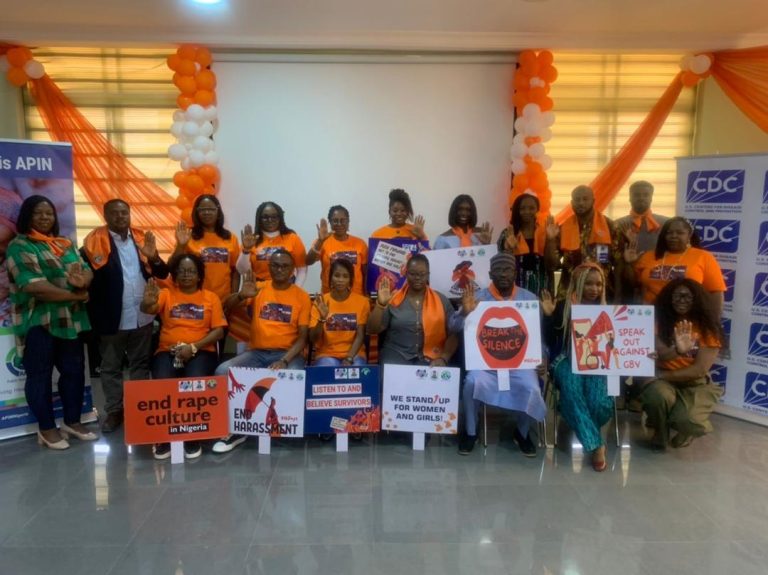The US Centre for Disease Control (US-CDC) has disclosed that it has implemented a strategic framework to tackle Gender-Based Violence in communities across Nigeria.
The implementation process, through the strategic framework, trained no fewer than 200, certified instructors to enhance the response to gender-based violence(GBV) through community-based interventions and approaches, have also successfully reached about 78,599 adolescents, primarily through school-based sensitization programs on gender-based violence GBV.
The US-CDC Nigeria’s Gender Program Specialist, Mrs. Bukola Adewumi, during a media round table discussion in Abuja, explained that they ensured that healthcare services are of high quality, accessible, and inclusive, recognizing the disproportionate impact of HIV and GBV on women and girls.
The roundtable was organized in collaboration with the AIDS Prevention Initiative in Nigeria and APIN in Abuja.
Adewumi said, “We implement targeted strategies to address these interconnected issues through a holistic approach.
“Our comprehensive strategy includes community-based interventions designed to transform harmful social norms. Additionally, we empower individuals with essential skills to manage their health and well-being.”
“Through these efforts, we aim to reduce HIV transmission rates and enhance support for GBV survivors. Ultimately, we strive to foster safer, more equitable communities where everyone can thrive.”
The APIN Deputy Chief Executive Officer, Dr Jay Samuel, noted that the growing attention to gender-based violence is timely, not coincidental adding that social media has amplified its visibility, highlighting the urgent need for collective action.
“To combat this epidemic, we must create awareness and foster platforms for discussion.
“Our organization boasts a dedicated Nigerian staff actively working across all states to address GBV. We appreciate support from the CDC and welcome this forum for knowledge-sharing and collaboration.”
“Today’s event marks a crucial milestone in our drive to raise awareness and reduce GBV incidence.
“Through interactive discussions and shared experiences, we aim to enhance awareness and understanding of this critical issue.
“This collective effort will foster action-oriented strategies to combat GBV. Ultimately, our goal is to inform evidence-based programming that drives meaningful change.”
“We anticipate a fruitful and engaging session, yielding valuable lessons to strengthen our organization’s efforts and benefit society as a whole.”
Speaking earlier, US-CDC Deputy Director for Programmes, Dr. Jerry Gwamna, stressed his organization’s commitment to intensifying gender-based violence sensitization efforts through collaboration with relevant agencies.
As Nigeria observes the 16 Days of Activism, international organizations like the U.S. CDC address the intertwined challenges of HIV and gender-based violence GBV on women and girls by implementing targeted strategies to combat these issues effectively.
With 2,673 cases of sexual violence and 23,494 cases of physical or emotional abuse documented in some states in Nigeria, Between 2018 and September 2024, these programs reached 5,452 individuals affected by sexual violence and 40,715 individuals impacted by physical or emotional abuse.
These numbers indicate the ongoing importance of prevention and support initiatives to address the far-reaching consequences of GBV in affected communities.
Get real-time news updates from Tribune Online! Follow us on WhatsApp for breaking news, exclusive stories and interviews, and much more.
Join our WhatsApp Channel now
